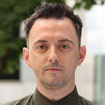Dr Michael Daly provides a guide to creating and delivering a whole-task learning model using goal-based scenarios and hybrid simulation.
Dr Daly is winner of Most Innovative Teacher of the Year in the Times Higher Education Awards 2022. Read more here.
In medical education, discussions around the efficacy of 'whole-task learning' have recently been amplified. When teaching highly complex tasks, this approach provides an alternative to atomistic models that break topics into pieces that are taught in isolation.
Whole-task models treat a learning domain as a coherent and interconnected whole that is taught in its entirety, in stages of ever-increasing complexity. As such, this approach attempts to solve three basic problems in education: (1) fragmentation, indicating that students are often unable to effectively combine elements they have learned separately; (2) compartmentalisation, implying that learners frequently struggle to integrate their acquired knowledge, skills, and attitudes; and (3) low transfer of learning, indicating that students often have difficulty applying what they have learned to new problems and situations.
Ideally, whole-task learning models should:
- be based on real-life, authentic, professional tasks to help students acquire knowledge, skills and attitudes in an integrated fashion;
- contain different tasks in a multitude of dimensions, because this variability of practice will help the transfer of learning;
- be spaced throughout the curriculum from relatively simple to increasingly complex tasks until the level of complexity is comparable to that encountered in professional practice; and
- be combined with support and guidance from teachers and instructional resources that gradually diminish over time via a process of scaffolding until students can independently complete complex tasks without any oversight.
In a traditional curriculum, each constituent part can be separately assessed. This is not true in whole-task curricula, since at the core of simple-to-complex whole-task learning is an assessment system in which knowledge, skills and attitudes are assessed in an integrated fashion, in a simulated or real-world professional environment, and each learner’s progress is monitored.
In our recent ASSIMILATE ExCELLENCE study, we simulated the whole doctor-patient clinical encounter using scripted narratives and a novel wearable technology that provided abnormal clinical signs when the simulated patient was examined. After the combined clinical history and physical examination, students were asked to integrate their findings and make a diagnosis in real time. Three whole-task, goal-based scenarios were developed by iterative expert consensus for different clinical presentations of valvular heart disease. In the crossover study, students received multimodal instruction from an expert trainer, undertook an assessment of their peers using a novel quantitative scoring checklist, and received feedback on their own performances from both peers and expert faculty.
Goal-based scenarios represent “a learn-by-doing simulation in which students pursue a goal by practising target skills and using relevant content knowledge to help them achieve their goal”, write Schank et al. in Instructional-design Theories and Models. An effective goal-based scenario consists of the following essential components:
- Goal. Two categories of learning goal are well established – namely, process knowledge, which reflects the skills and attitudes necessary to solve a problem; and content knowledge, which considers the knowledge required to achieve a goal. An ideal goal-based scenario uses both categories.
- Mission. The mission of a goal-based scenario is closely related to its goals and represents the actual assignment the student must complete. The mission must be realistic and motivating and should resemble a real-life task that would be undertaken for an important reason in professional practice.
- Cover story. The cover story forms the incentive for students to become engaged and should encourage them to practise their skills and attitudes, seek information and construct the knowledge that is reflected in the learning goals.
- Role. The role defines the perspective the student will take in the cover story and should motivate them to achieve their learning goals by being both realistic and appealing.
- Scenario operations. These are the activities a student will perform to accomplish the learning goals. Each goal-based scenario should elicit numerous scenario operations that contain decision points so that students can understand the consequences of their actions and decisions.
- Resources. There should be well-organised and easily accessible resources that contain all the information required by students to achieve the learning goals.
- Feedback. Timely, situational feedback, ie quantitative, qualitative or both, should be provided by peers, trainers, or expert faculty. Moreover, domain experts’ stories from similar real-world experiences should be contained within the resources.
Thus, goal-based scenarios integrate knowledge, skills and attitudes into meaningful wholes. Importantly, teachers can set diverse goals in their design to enable learners with differing prior knowledge and interests to achieve the same outcomes. Goal-based scenarios are less concerned with the sequence of instruction; rather, they focus on the performance of real-life tasks in authentic contexts to facilitate learning. Learning is enhanced when learners are engaged in solving real-world problems, when their existing knowledge is activated as a foundation for new knowledge, and when that new knowledge is demonstrated to them, applied by them, and then integrated into their own worlds. As we have learned through our whole-task simulation study, sequential goal-based scenarios in combination with timely feedback can result in measurable improvements in learning, professional performance, knowledge integration, real-time decision-making, and confidence as students approach future real-world experiences.
This article was originally published in THE Campus on 4 November 2022.
 Dr Michael Daly is a postdoctoral researcher in medical education and simulation at RCSI SIM Centre for Simulation Education and Research. .
Dr Michael Daly is a postdoctoral researcher in medical education and simulation at RCSI SIM Centre for Simulation Education and Research. .
RCSI is committed to achieving a better and more sustainable future through the UN Sustainable Development Goals.
![]()
![]()

